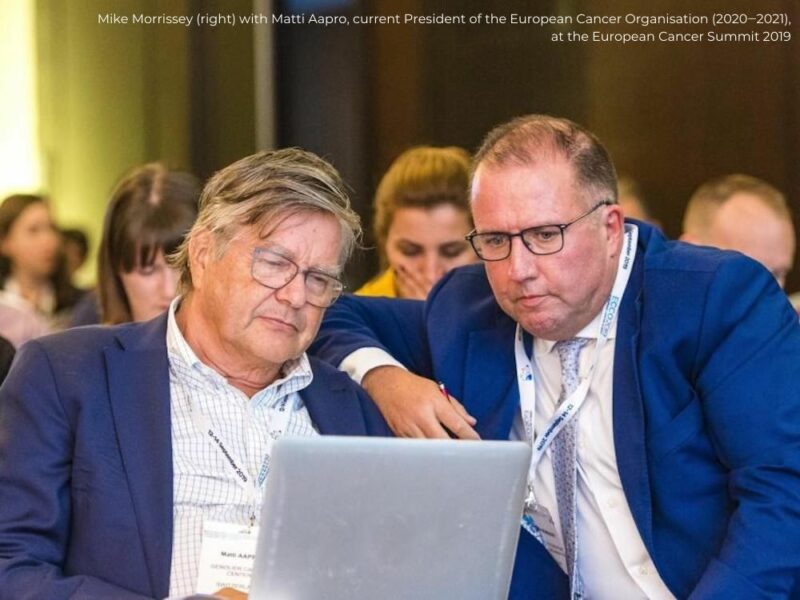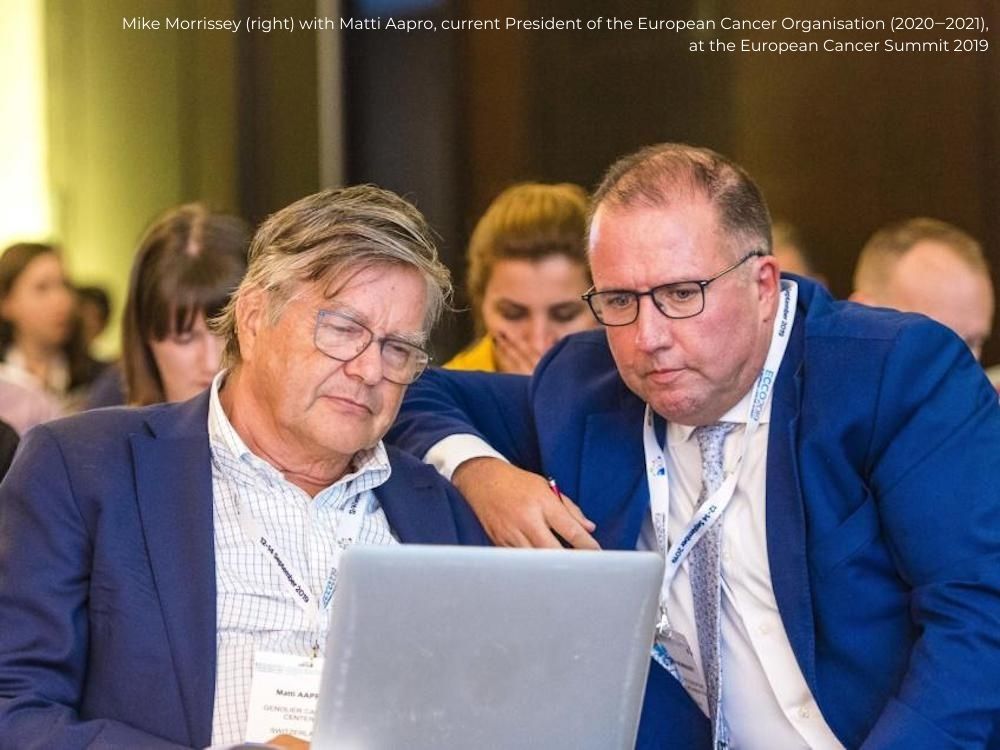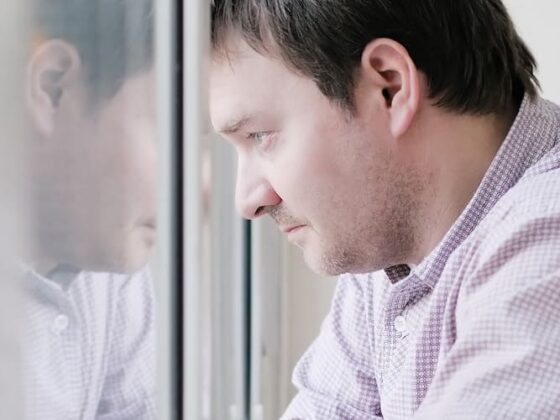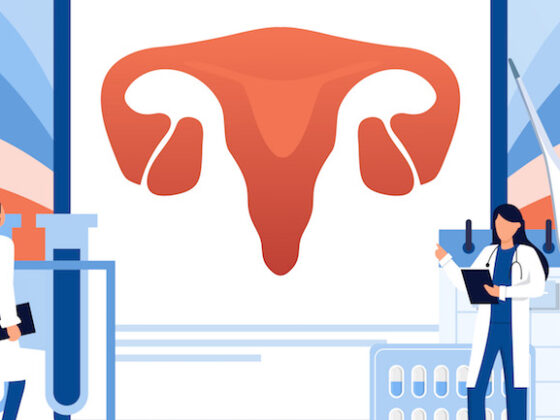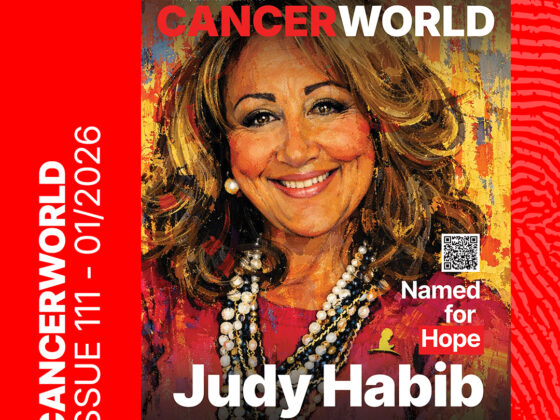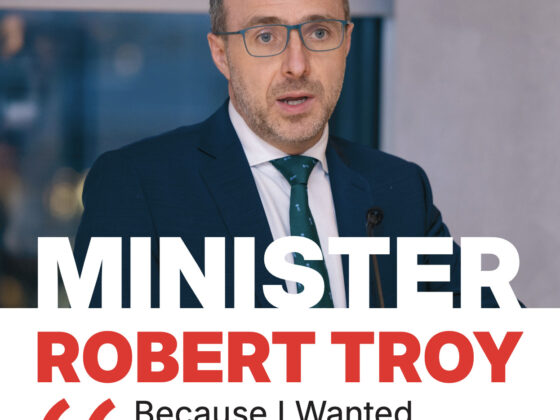The European cancer community has long had its ups and downs in its efforts to act in concert to promote policy and standards throughout its constituent countries, which differ widely in their healthcare systems and resources. There have been numerous cancer declarations and plans, promoted by politicians, policymakers, professional cancer and organ-based societies, and patient groups, but there has been much fragmentation and lack of sustainability as actions come and go, funding starts and stops, and the ‘deliverables’ that do take shape often take many years to complete.
At the centre of shaping policy is the European Cancer Organisation, now relaunched under new leadership, having previously navigated the often turbulent political waters with some difficulty under its old names of ECCO (as it was commonly known) and, before that, the Federation of European Cancer Societies (FECS).
The core of the organisation is still a federation of cancer societies such as ESTRO (radiation oncology) and ESSO (surgical oncology), EONS (cancer nurses) and, more recently, the EHA (haematologists), as well as patient groups, which have grown in strength and number in recent years. The determination to act together and influence politicians and policymakers at national and EU level – its consistent mission since the idea of a federation was floated in the 1980s – remains strong.
What it seems to have lacked is a leadership capable of uniting the many voices in the cancer community in the most relevant way. This seems to have been put right with the appointment in 2019 of Mike Morrissey, a Briton brought up near London.
Morrissey was headhunted for the role from the European Society of Cardiology (ESC), and before that held senior positions at member associations outside the health sector, earning a reputation as a ‘troubleshooter’ able to quickly address sometimes existential problems and the competing demands of members and staff. His formative working years were spent dealing with some of the most fragile egos on the planet – professional tennis players – when he was at the International Tennis Federation.
“I’m not a business-as-usual sort of guy – I look to inject new energy into an organisation, and I want a challenge and not just to make a business model a bit more comfortable. But it wasn’t a straightforward decision to join the European Cancer Organisation,” says Morrissey. There was no doubt that ECCO was in big trouble both financially and in lack of direction, but it was a challenge he was looking for in a second move into the health field, having learned and achieved much at the ESC and with its cardiology community.
“My experience with member organisations is that the main issue is being relevant – if you are, then other issues tend to solve themselves”
“I was struck by the great enthusiasm from most of the people I met for us to be successful in a new guise. My experience with member organisations is that the main issue is being relevant – if you are, then other issues such as finance, visibility and membership tend to solve themselves.”
It’s a good time to be relevant in European cancer policy, which was one factor that swayed Morrissey’s decision. The European Union has embarked on one of its most ambitious cancer programmes yet, in the Beating Cancer Plan, complemented by the Mission on Cancer, and there is a good deal of potential new investment. “Funding of the plan will be game changing,” Morrissey says, noting that there is more than €5 billion allocated for the umbrella health initiative, EU4Health, which runs from this year to 2027.
Orchestrating European Cancer Organisation members, under their guidance, into networks that map into European priorities, and helping to build consensus with policymakers are key aims now, and Morrissey has moved quickly to produce workstreams and an overall strategy that are creating that magic word – relevance.
Finding solutions
The field that Morrissey was previously very relevant in was sport, and tennis in particular. “I was a terrible sportsman but my father was keen for me to be good at it. I did the next best thing and got involved in officiating at tennis tournaments, and at 17 I became the youngest ever linesman at Wimbledon.” Tragedy struck that year as his father was killed in a motoring accident. It spurred him to be passionate about the tennis world, and he went on to be an international umpire at a time when there was a need for younger and more diverse people to take over from the amateur incumbents – the ‘retired colonels’ as he puts it.
“Umpiring is about finding solutions and not just making decisions, and I was dealing with big egos who were under huge pressure,” he says, “and we were all on TV in front of millions.” It was a job that he became more nervous about as he got older – “You are fearless when young” – and no doubt, with the likes of John McEnroe on court, dealing with personalities in the cancer world, strong as they can be, is put into perspective. (See here for a roundup of his tennis umpiring exploits – which include five Wimbledon men’s finals and a streaker…)
Morrissey went into managerial positions in international tennis, before making a switch to leadership roles in a diverse series of other member bodies – Institution of Engineering and Technology, International Council of Shopping Centers, International Federation of Air Lines Pilots’ Associations, and then the health move to the cardiologists.
A common denominator with his roles is the presence of volunteers and their interaction with the organisation. As he says, they are mostly busy experts and not getting paid for working with an association. “They want to know that things that have been agreed will get done,” he adds. “And you can’t underestimate how much more volunteers give if we make it easy and enjoyable for them.”
“They know I don’t know that much about oncology but I need to demonstrate I know how to run an association”
Gaining quick respect from volunteers – which in the cancer community are representatives from currently 34 societies and 20 patient groups federated to the European Cancer Organisation – is crucial, says Morrissey. “They know I don’t know that much about oncology but I need to demonstrate I know how to run an association.”
That also includes staff members and their relationship with volunteers, and in his three years at ESC as chief operating officer he dealt with a formidable number of issues in this long-standing organisation that was in need of new energy, by re-organising the staff structure, fostering collaborative working and removing barriers between staff and volunteer leaders – creating a more ‘family’ atmosphere rather than one where staff were sometimes perceived as obstacles.
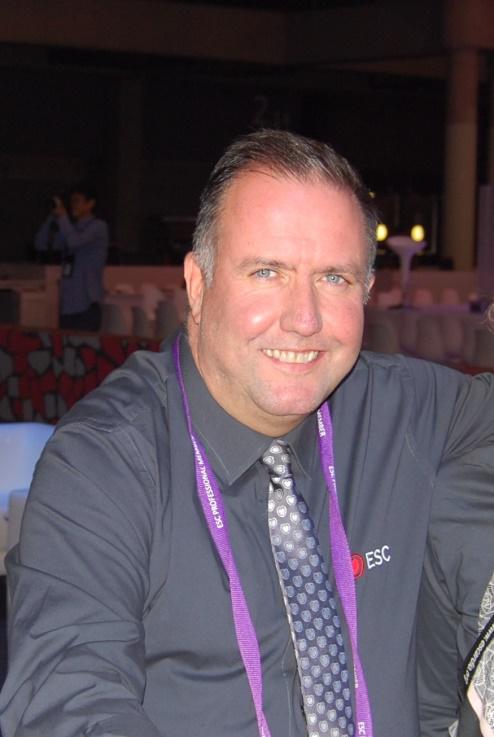
Certainly, anyone reading Morrissey’s CV will be struck that he pulls no punches and has tackled such issues head on and quickly. It’s a truism that all organisations say they are a ‘people business’ but, as he notes, member federations are different because of the need to involve an often changing base of volunteer members, some at very senior professional levels, and craft their relationships with the organisation’s staff. “People cannot be overestimated in the association world,” he says.
With no background in health, moving to the ESC and then the European Cancer Organisation were successive shocks to his system in terms of a learning curve. But he says he was surprised how open doctors have been about their experiences. “A case in point was a cardiologist who told me about their first patient death as a heart surgeon – it had a big impact on him, and others have told me about the difficult conversations with families and loved ones. I’ve also learned about the cultural differences in attitudes to health between say the Nordics and southern Europe. You are only exposed to conversations with doctors in personal situations usually. What I’ve learnt about is the environments they work in – not so much the intricacies of the heart or cancer.”
Collaboration not competition
Two important facets he has brought to the European Cancer Organisation are extensive international experience and, from the ESC, the ability to keep a number of semi-autonomous subspeciality groups on board. The cardiology and cancer communities are probably equivalent in societal importance in Europe, and Morrissey was also involved with the annual ESC Congress, which has attracted more than 30,000 attendees, and he organised a visit by Pope Francis to the congress in Rome in 2016.
Although cancer events have moved to focus on individual cancer types such as breast and lung, one of the casualties at the old ECCO was the end of its large annual conference. If anyone won the battle of the cancer conferences, it is the powerful European Society for Medical Oncology (ESMO), which is not currently a member of the European Cancer Organisation and also sees itself as ‘market leader’ in oncopolicy. It will be interesting to see whether a new relationship is formed between the two.
Morrissey was well aware of the politics in the European cancer community, but says that is part of the challenge for him. “What we need to do is to amplify voices both big and small within a federation and foster collaboration and not competition,” he adds. As befits a new leader at any level, he used his first 100 days to listen to a wide range of stakeholders, and drew up a new strategic plan and business model that he feels has re-established relevance under, what looks from the outside, to be a new organisation with a new brand.
He can’t emphasise enough how important it is that the cancer society and patient group stakeholders see the results of their efforts bear fruit
The strategy has one obvious quality – simplicity, as it has clarified the priorities and given the organisation a coherent mission. Too many organisations try to do too much and end up doing little, he feels, and he can’t emphasise enough how important it is that the cancer society and patient group stakeholders see the results of their efforts bear fruit.
So there are just two pillars – policy and advocacy at European level, and what is termed ‘focused topic networks’, of which there are currently nine, including a recent ‘special’ network on the impact of Covid-19 on cancer. Other networks include prevention, HPV action, health systems and treatment optimisation, inequalities, quality cancer care, and workforce. The idea is that the networks establish consensus that may then feed into the policy arm of the organisation.
Morrissey also emphasises the partnership he has with Matti Aapro, the prominent medical oncologist who is the current president of the European Cancer Organisation (and on the board of the European School of Oncology) – a good relationship between CEO and president is vital if member associations are to thrive, he says. “Matti has been a fantastic guide to the oncology world and we have a great working relationship.”
With Aapro and other board and staff members, Morrissey says they have networked extensively not just with member societies but also at EU level and with the WHO, and they look to have made the European Cancer Organisation relevant in the committees that have developed the Mission on Cancer and Beating Cancer Plan, such as the Special Committee on Beating Cancer (BECA) , and also with MEPs Against Cancer and the Challenge Cancer Intergroup ‒ an EU parliamentary group that was launched in 2020. The secretariat for the Challenge Cancer Intergroup is provided by the European Cancer Patient Coalition, which is a European Cancer Organisation Patient Advisory Committee member. No doubt he has found Stella Kyriakides, European commissioner for health and food safety, especially receptive, given her own background as a cancer patient advocate and Past Chair of the ECCO Patient Committee. The first annual report under the Aapro/Morrissey partnership is now out.
“We are positioning ourselves not as an organisation with a list of complaints but with a list of constructive solutions”
He sees his team’s key role as ‘joining the dots’ for policymakers on the basis of evidence developed among the topic networks. It is no accident that some of the networks mirror elements of the Beating Cancer Plan, such as eliminating HPV and inequalities, and as he says: “We are positioning ourselves not as an organisation with a list of complaints but with a list of constructive solutions. When talking to politicians, policymakers and the media we need to present complex medical topics in ‘headline’ terms. There is no doubt that they are looking to be educated, but we need to engage in real conversations, rather than almost lecture them as some associations sometimes do.”
There has been a noticeable uptick in the output. Last year saw a submission to the EU consultation on the Beating Cancer Plan and a study, Strengthening Europe in the fight against cancer, commissioned by the European Parliament. The European Cancer Organisation is now affiliated to the Journal of Cancer Policy, and instead of a general conference, there is now an annual policy summit. An important publication is the European Code of Cancer Practice, which has its origins in the European Cancer Patient’s Bill of Rights from 2014, and which has also been described in a new paper in the Journal of Cancer Policy.
Altogether, it’s a much more streamlined approach to cancer policy. Morrissey agrees though that the EU now has many, often confusing, initiatives in cancer, not least in the recent flurry of activity. “We can’t change the way the EU works, and we can’t do everything, but we can provide access to expertise for the way plans are made and implemented and I’m confident we can help make cancer policy better in Europe by doing what makes sense for our stakeholders.”
It’s probably an easier task than umpiring tennis stars and it’s too tempting not to quote John McEnroe: “You cannot be serious!”, which he howled at a tennis umpire at Wimbledon. Anyone who doubts Morrissey’s seriousness in serving the cancer world effectively will soon learn he is after just a few minutes in his company.

